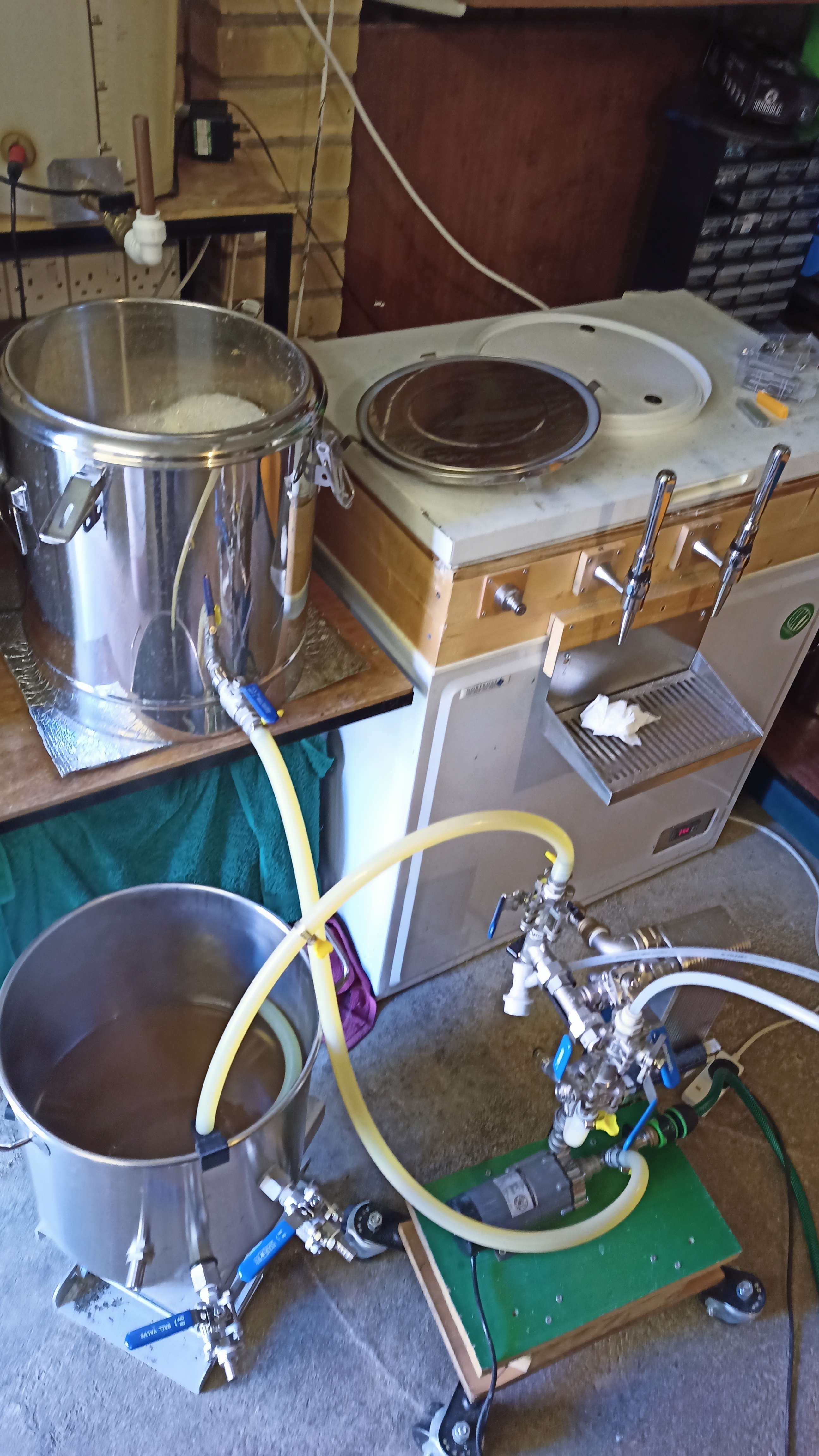this post was submitted on 09 Apr 2025
58 points (100.0% liked)
Homebrewing - Beer, Mead, Wine, Cider
2726 readers
3 users here now
A community dedicated to homebrewing beer, mead, wine, cider and everything in between. If it ferments, bring it over here.
Share recipes, ideas, ask for feedback or just advice.
Some starting points for beginners:
Quick and diry guide to fermenting fruit - cider and wine
founded 2 years ago
MODERATORS
you are viewing a single comment's thread
view the rest of the comments
view the rest of the comments

I can share an arcane secret here: I don't do step feeding. After a volume of complex theoretical and experimental science (and mysticism, as it often happens upon consuming statistically meaningful amounts of mead samples, blanks, etc. - fortunately, it's not distilling, thus no methanol, not even once blind!), we've came up with ultimately awesome slow release nutrient: almonds! Just 1g of slightly cracked (not crushed, or you'll regret it) nuts per liter, let them float, separate on secondary fermentation or on bottling, does not matter much. ABV 14+ easily and reliably.
Other nuts we checked (we've looked into quite a lot, hazels included) are nutritious too, but release noticeable amounts of oil. Pine nuts are of special note, they made yeast go crazy overboard, but the product was barely drinkable due to bitterness, oiliness, and general skew.
For nutrition, it seems, nitrogen and vegetable oil are equally important. According to Dr. White, addition of fatty acids to yeast as nutrient promotes cell wall growth, even to the point that it might be possible to achieve efficient exponential growth with very low oxygen content. Nitrogen available from almonds proteins is slowly released and (I suppose) makes yeast adjust cellular machinery to actually process complex materials into its own proteins. So, it's balanced diet!
And, as another, even more natural approach, - don't refine honey too much, let some pollen go through. Pollen is pretty much most appropriate protein rich nutrient in existence, and it also imparts lots of flavor, naturally.
There you go. Very simple stuff.
This is awesome! Thanks for the write up!
This is easily the most interesting thing anyone has said to me on the internet in ages.
Why cracked and not crushed? Does the powder mix and create a weird residue?
Yes, it does! When it's crushed, it's not-so-slow release, mostly of oily matter that just stays inside if they are only cracked. And in the end, the powder could sink, or it could stay on surface, cling to tubing, clog filters, etc. And the regret of actually doing more work to grind on top of that!
There is also small increase of chances to contaminate the product, extra solid surface (negligible area in almost whole nuts versus non0negligible in powder) can harbor and somewhat protect species that are normally intolerant to alcohol.